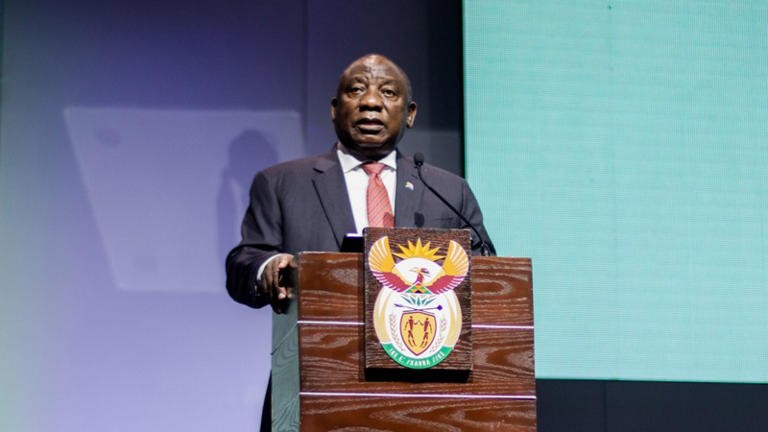Johnathan Paoli
Opposition parties and civic organisations are outraged at the passing of the 16-year-old Expropriation Bill, which is set to be signed into law by President Cyril Ramaphosa.
This comes after the National Council of Provinces’ recent endorsement – with minor proposed amendments – that were eventually adopted by the National Assembly this week.
The DA, EFF, IFP, FF+ and ACDP opposed the Bill with the ruling party using its majority on Wednesday night, backed by the NFP, COPE and Al Jama-ah, to pass the contentious legislation.
The Expropriation Bill, the third iteration of this legislation since 2008, allows expropriation for public purpose in the public interest and allows for “nil compensation” in a handful of categories, including land held for speculation, abandoned land and state land.
Opposition parties have voiced their concern over the possibility of the ruling party using this legislation as an election ploy ahead of the national and provincial elections in May.
The DA called the Bill a reckless attack on the Constitution and along with the FF+ on Thursday announced their intentions to take legal action.
DA deputy chief whip Annelie Lotriet said her party had set the legal wheels in motion to challenge the bill.
“The DA has instructed our lawyers to begin working on a letter of demand to the president, asking him to refer the bill back to the National Assembly for consideration on its constitutionality,” Lotriet said.
Lotriet said the DA will continue to fight the Bill to the very end in order to protect the property rights of South Africans.
“The ANC is risking the property rights of millions of South Africans purely for cheap political gain. As we see the ANC falling substantially below 50% in voter support, the DA will not allow them to pass dangerous legislation for bad faith electioneering,” she said.
FF Plus leader Pieter Groenewald said the ANC’s decision to adopt the Bill would spell disaster for the country, and the party will initiate a legal process to oppose it all the way to the Constitutional Court, the moment the president signed into law.
Groenewald said that South Africa’s economy will be destroyed if investors have no certainty regarding their property rights and are not making light of the matter.
“One of the most important cornerstones of a free-market economic system is the right to privately own land and property, and this bill undermines that right in all respects. Everything is in jeopardy, from tangible to intellectual property,” he said.
The EFF said the Bill would “protect the current landholders – the settlers and colonialists”, while the ACDP also spoke against it.
EFF leader Julius Malema accused the ANC of “high-jacking” the process of radical land reform in an effort to protect its interests and appropriate the social capital for political gain.
“The ANC hijacked this motion in parliament. When we get the majority we are going back to re-table it and amend the constitution,” Malema said.
IFP MP Sanele Zondo pointed to irregularities in obtaining provincial mandates in the NCOP, and said that while the IFP supported meaningful land reform as a part of transformation, this legislation was not it.
Civil society group Afrikanerbond has also weighed in on the matter and voiced its opposition to the Bill, with chief secretary Jan Bosman saying that his organisation did submit formal comments in the process but is also already involved, together with other civil society institutions, in considering the issue thoroughly.
“The country cannot allow the ANC to use the issue of property rights, as guaranteed in the Universal Declaration of Human Rights, as either a weapon in its factional in-fighting or a party-political election ploy. The draft legislation gives the ANC government the space to arbitrarily expropriate land, and this has enormous implications for business and investor confidence,” Bosman said.
The ANC on the other hand has defended the Bill and said it was based on best international practice.
ANC MP Timothy Mashele said it was a balanced perspective, between owner and public interest and would ensure fair processes.
“Passing the Bill should happen as a matter of yesterday, people have been waiting for land to be expropriated so the government could build houses and health facilities,” Mashele said.
Furthermore, a statement by trade union federation Cosatu welcomed the passage of the expropriation legislation as a “historic victory for the working class, the dispossessed and the downtrodden” and a tool to accelerate land reform.
The Bill has been sent to the Presidency, with President Ramaphosa expected to make his decision on whether to sign it into law or send it back to the NA, next week.
INSIDE POLITICS

